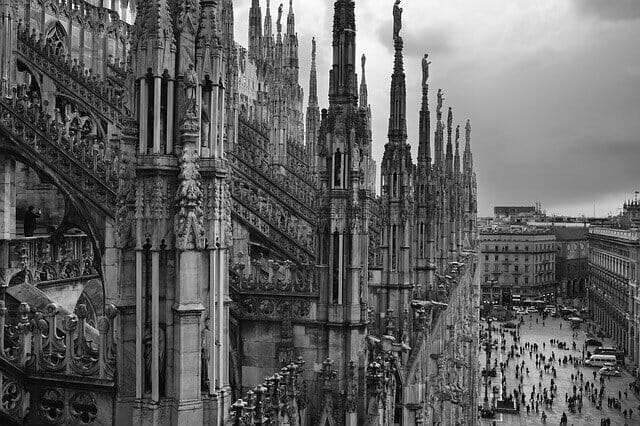From the Duomo of Milan on Easter Sunday Andrea Bocelli blessed a global, virtual audience singing the eponymous Amazing Grace. Just hours earlier my neighbors and I stood in our cul-de-sac singing the same hymn, a hymn Johnny Cash called “a song with no guile”. Our very ordinary homes can not compare to the Duomo, and our voices, well, we certainly made a joyful noise. Yet, the longing and cry of our hearts— heavy from a global pandemic while sheltering at home for weeks on end—sincerely and reverently thanked God for the empty tomb of Christ.
The amazing grace of which Christians sing each Easter speaks of Jesus’ sacrifice and offer of redemption. In addition to singing, my neighbors and I offered prayers of thanksgiving for the medical professionals and first responders, while asking God to heal the world and close friends, colleagues, and family from the ravages of COVID-19. Our prayers of supplication, or request, covered the global economy to the local pizzeria to government relief and to hospital capacities. Our prayers were not specific to the salvific work of Christ on the cross, but rather focused on the loving, merciful, and graceful intervention of God in a world that is suffering.
These pleas are for a generosity only of God, known in Calvinist theology as common grace. Not the specific or special grace involved in salvation from sin, but an equal measure of God’s goodness, love, and grace that benefits us all. It is a grace that reminds us that we are not self-sustaining entities, but rather we depend on much that is not in our control.
The common grace of God for the Christian explains how amazingly far God’s grace actually reaches. One simply has to reflect on the brokenness of this world, a world that can be ravaged, at all levels, by a virus in a matter of weeks. We all too easily forget how much of life is actually lived out of the abundance that common grace provides.
Common grace expresses itself as both protection and blessing. Notably it protects us from the full brunt of our broken creation and her aftermath. God holds back the chaos caused by war, famine, cancer, and pandemics. The dystopian societies we see in films like Mad Max or The Hunger Games may have been the norm and could be our future. Yet, the day to day reality for most of human civilization is that things have advanced and improved.
Common grace is also the positive effort of God to promote the common good, and it comes in a myriad of fashions from technology to art to human rights and more. Personal protective equipment, vaccines, ventilators, and telemedicine are often overlooked graces brought about through human ingenuity, hard work, and technological advancement. Sappho, Shakespeare, and the art of Christo and Jeanne-Claude are examples of God’s common grace calling us to understand ourselves and our world better. Yes, aspects of human civilization and culture are deemed regressive, and create new problems of their own like mass immigration, environmental crisis, and threatened privacy. Even here, however, God gives common graces to manage the failures of our times.
The culturally redemptive results of an artist, civil servant, or medical researcher cause me, then, to ask what will be the redemptive purpose of COVID-19? No doubt, many will suffer. For some redemption will be hard to find, and is not even feasible for some to consider at this time. And yet, if the grace shown by God towards a wretch like me is what the Christian celebrates on Easter, surely we need and should find redemptive purpose in the common grace seen in these dark and heavy times. Perhaps it is a reset in a family’s rhythm and relationship due to extended lockdown, or an entrepreneurial breakthrough in business as brought about in economic disruptions? I would settle for the thickening in the social fabric of neighborhoods and apartment buildings. Celebrating the smallest bit of common grace allows the blind to see hope, and the lost to be found in all, but especially hard, times.
Case Thorp is the senior associate pastor at First Presbyterian Church, and the 39th moderator of the Evangelical Presbyterian Church.
A version of this blog appeared first as an editorial in The Orlando Sentinel, April 29, 2020





